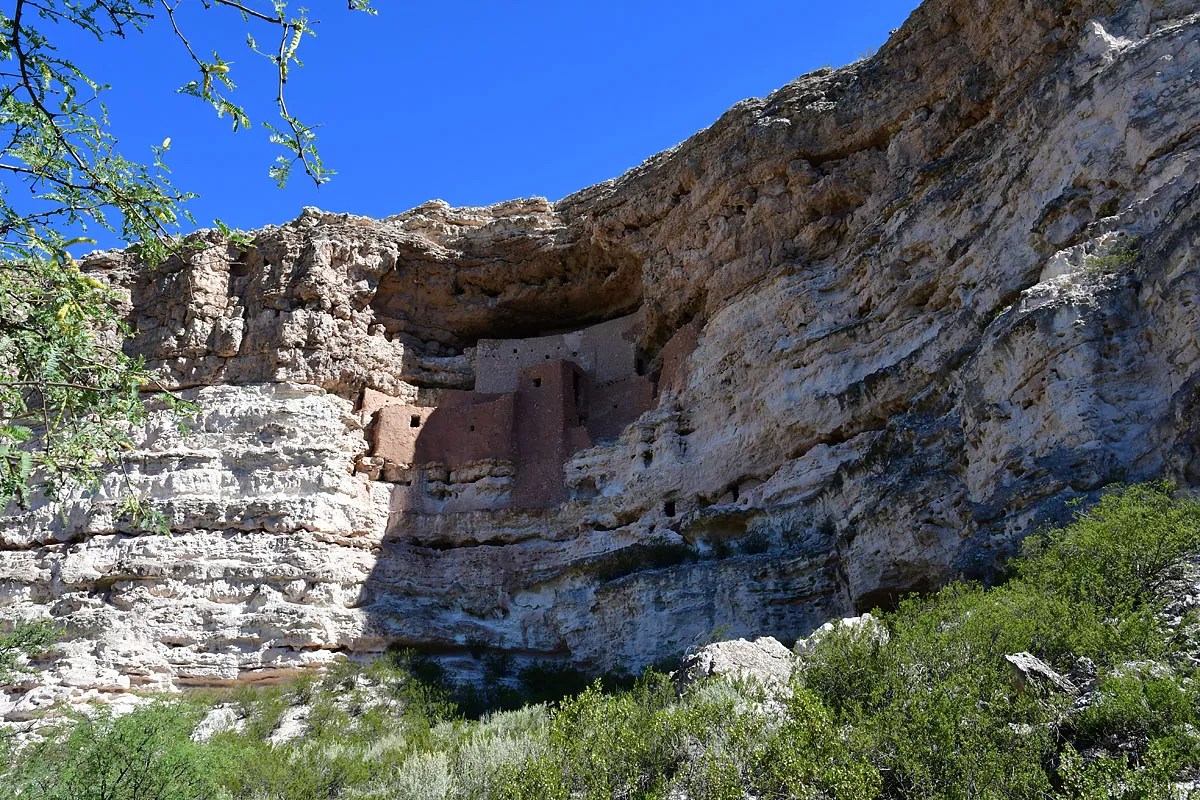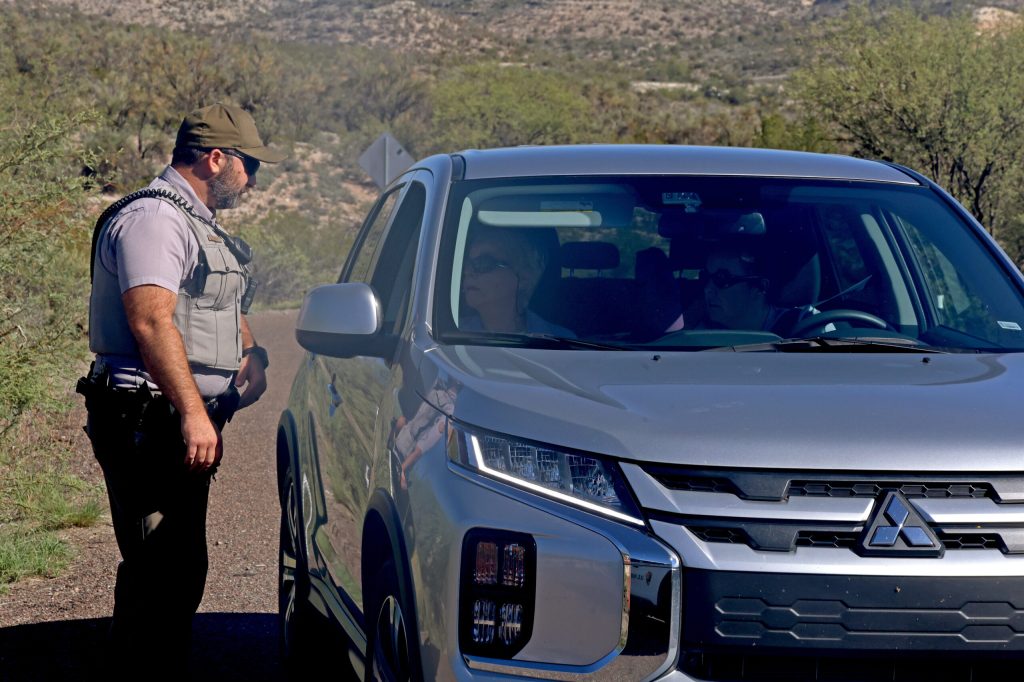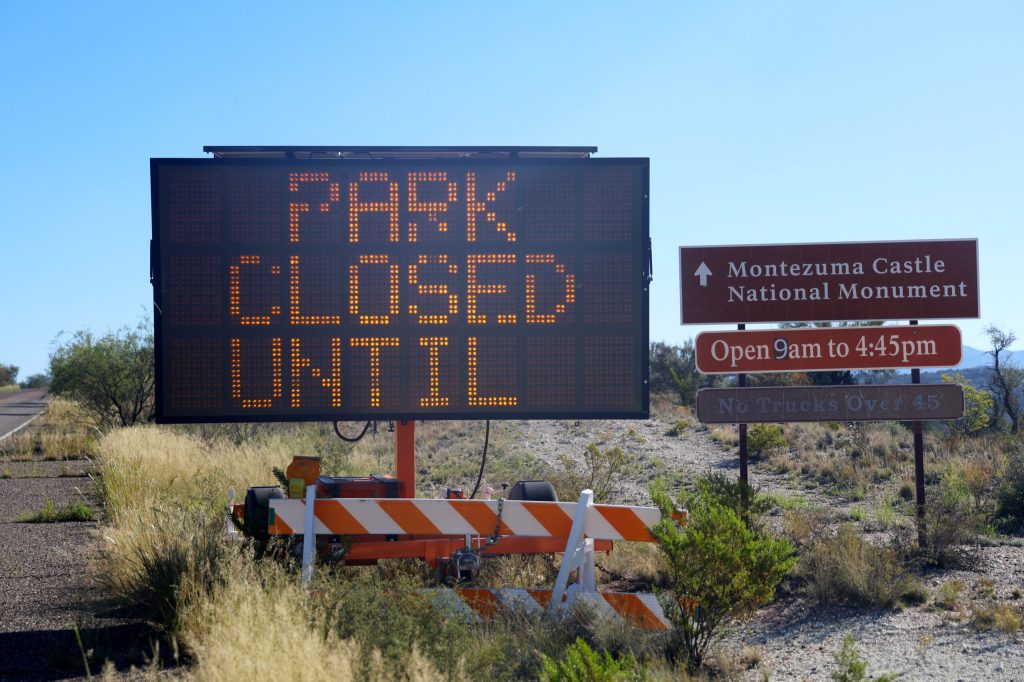
Pack-Shot/shutterstock.com

Audio By Carbonatix
Yasmeen Mustafa approached the locked gates at Montezuma Castle National Monument and let out a deep, frustrated sigh as it dawned on her that the monument — and other national parks in Arizona, too — would have closures after the government shutdown began Wednesday.
“I really have no words to describe how I’m feeling right now,” she said. “I’m so upset.”
Wednesday marked the first day of her 10-day “dream trip” throughout the Southwest. Mustafa and her family planned to visit the Montezuma Castle National Monument, Bryce Canyon and Moab in Utah and other national parks and monuments in the area.
Dozens of other hikers and tourists like Mustafa were turned away Wednesday morning, disappointed by a “park closed until further notice” sign and gated-off entryways.
A few park rangers, including Cody Becker, patrolled the area, informing people of the closure and ensuring no one would enter the park. Occasionally, the rangers flashed car lights to get the visitors’ attention.

Sydney Lovan/Cronkite News
Dozens of cars rolled toward the closed automated gates, slowed and eventually turned around. Some disappointed passengers drove away wearing scowls.
Other than what the rangers at the monument could share, updates were hard to come by for confused sightseers. According to the Department of the Interior website, due to the federal shutdown, there would be no updates there, and employees would not be able to respond to questions until funding is secured.
A couple from Austria was visiting the monument as part of their three-week U.S. trip. The Montezuma Castle National Monument was just one of the sites they had planned to visit during the final week.
“We are very sad, but there is a shutdown and the park is closed,” Herbert Grell said.
His wife, Silvia Grell, echoed the sentiment. She knew the shutdown was possible, but hoped parks might remain open, she said, adding that she had very little information beforehand.
The Grells weren’t the only visitors walking away disappointed on Wednesday.
Mustafa knew the shutdown was looming, but she was unable to rebook her travel and had no other choice but to “take a chance to come and see — maybe it will not happen,” she said.
Mustafa said she wasn’t sure what she planned for the rest of her trip, or what her family would do next.

Sydney Lovan/Cronkite News
Al Valencia and his wife said they’d make the most of the situation — shopping and exploring the nearby Cliff Castle Casino. Nonetheless, the Californians were let down and frustrated, too.
“It’s very disappointing,” said Valencia, who came from Los Angeles to visit the park. “But we’ll make the best of it. What we decided to do is probably go back up to Sedona and see a few things that we didn’t have a chance to look at yesterday.”
The Arizona government stepped in to keep parks open in the past, but Gov. Katie Hobbs won’t do the same for the current shutdown.
“The Trump administration has cut health care for hundreds of thousands of Arizonans, forced red tape and bureaucracy on the state that will cost tens of millions of dollars annually and raised taxes on Arizona families and businesses by historic amounts through a reckless trade war,” Hobbs spokesman Christian Slater said in a statement to KJZZ. “As a result, the state of Arizona cannot afford to keep the state’s national parks open.”
During a 35-day government shutdown from December 2018 to January 2019, former Arizona Gov. Doug Ducey worked to keep the Grand Canyon open. The same happened under former Gov. Jan Brewer in 2013.
The parks will remain closed until further notice as nonessential departments and employees are furloughed until Congress reaches a budget agreement. As of Sept. 24, there were 34,460 federal employees living in Arizona.
The National Park Service has a contingency plan for a lapse of appropriations. According to the plan from September 2025, park roads, trails and memorials will remain accessible.
However, at the assistant secretary for Fish and Wildlife and Parks’ discretion, parks can be closed if they have “sensitive natural, cultural, historic or archaeological resources vulnerable to destruction, looting or other damage,” according to a 2019 email from then-spokesperson Jeremy Barnum.
Park rangers threatened to ticket people trying to access the park. Mustafa had no plans to sneak in herself, but wasn’t sure what the rest of her trip would look like.
“This is not fair to the citizens of the United States. Whatever is going on in the government, they need to change their way of running the country,” Mustafa said. “I really hope they resolve the issues that they have soon. So I mean, the regular people like us, you know, who saved enough money to really take these trips, can enjoy our trips.”
For more stories from Cronkite News, visit cronkitenews.azpbs.org.